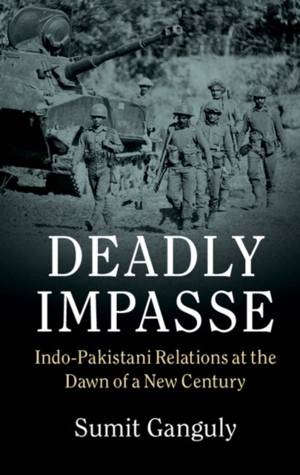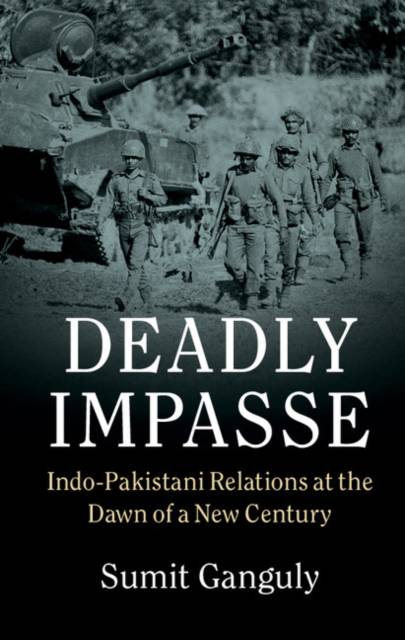
- Afhalen na 1 uur in een winkel met voorraad
- Gratis thuislevering in België vanaf € 30
- Ruim aanbod met 7 miljoen producten
- Afhalen na 1 uur in een winkel met voorraad
- Gratis thuislevering in België vanaf € 30
- Ruim aanbod met 7 miljoen producten
Zoeken
Deadly Impasse
Indo-Pakistani Relations at the Dawn of a New Century
Sumit Ganguly
Paperback | Engels
€ 44,95
+ 89 punten
Omschrijving
What ails the Indo-Pakistani relationship? Rivalry between the two states has persisted since the partition of the British Indian Empire in 1947, and despite negotiations, four wars and multiple crises, India and Pakistan remain locked in a long-standing dispute. Evaluating relations from 1999 through to 2009, Sumit Ganguly seeks to understand this troubled relationship and why efforts at peace-making and conflict resolution, which have included unilateral Indian concessions, have not been more fruitful. Charting key sources of tension throughout the decade, including the origins and outcomes of the Kargil War in 1999, developments in the Indian-controlled portion of the state of Kashmir, the attack on the Indian parliament in December 2001 and the onset of the 2001-2 crisis, Deadly Impasse sets out to discover whether the roots of this hostile relationship stem from security dilemmas or reflect the dynamics between a status quo power and a predatory state.
Specificaties
Betrokkenen
- Auteur(s):
- Uitgeverij:
Inhoud
- Aantal bladzijden:
- 184
- Taal:
- Engels
Eigenschappen
- Productcode (EAN):
- 9780521125680
- Verschijningsdatum:
- 29/03/2016
- Uitvoering:
- Paperback
- Formaat:
- Trade paperback (VS)
- Afmetingen:
- 140 mm x 218 mm
- Gewicht:
- 231 g

Alleen bij Standaard Boekhandel
+ 89 punten op je klantenkaart van Standaard Boekhandel
Beoordelingen
We publiceren alleen reviews die voldoen aan de voorwaarden voor reviews. Bekijk onze voorwaarden voor reviews.











